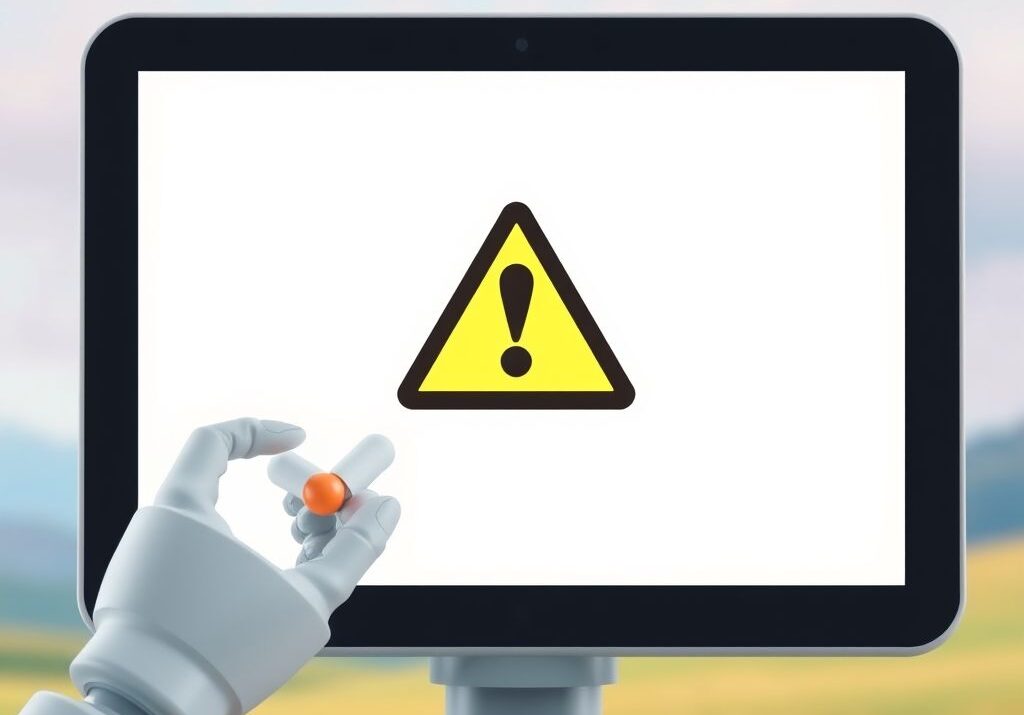Ever felt like you’re talking to a wall when you’re dealing with customer service chatbots? Well, new research suggests that might be the least of our worries when we’re relying on AI for medical advice. I stumbled upon an interesting piece from VentureBeat about an Oxford University study, and it really got me thinking. The headline? “Just Add Humans: Oxford medical study underscores the missing link in chatbot testing.”
Basically, the study suggests that patients who use chatbots to figure out what’s wrong with them might actually end up worse off than if they stuck to traditional methods. Ouch.
We’ve all seen the hype around AI in healthcare. The promise of instant access, personalized advice, and lower costs is definitely appealing. But this Oxford study throws a serious wrench in the works. It highlights a crucial element often overlooked: the human touch.
Think about it. A doctor doesn’t just rattle off symptoms and spit out a diagnosis. They listen, they empathize, they pick up on subtle cues that a machine might miss. They build a relationship with you, which is proven to impact treatment outcomes. According to a study published in PLOS One, strong patient-physician communication is associated with higher patient satisfaction and better adherence to treatment plans https://journals.plos.org/plosone/article?id=10.1371/journal.pone.0220244. Can a chatbot truly replicate that? I’m not so sure.
The VentureBeat article doesn’t go into the specifics of why chatbots might lead to worse outcomes, but I can imagine a few reasons. Maybe the algorithms aren’t sophisticated enough yet. Maybe patients misinterpret the chatbot’s advice. Or maybe, and this is my hunch, the lack of human connection leads to anxiety, mistrust, and ultimately, poorer health decisions. A 2020 study in JAMA Internal Medicine found that while patients were generally accepting of AI in healthcare, they also expressed concerns about accuracy, privacy, and the lack of human interaction [https://jamanetwork.com/journals/jamainternalmedicine/fullarticle/2764238].
Of course, this doesn’t mean AI has no place in healthcare. Chatbots can be useful for things like scheduling appointments, refilling prescriptions, or providing basic information. But when it comes to diagnosing and treating complex medical conditions, it looks like we still need that human element.
So, what are the takeaways here?
5 Key Takeaways:
- AI isn’t a replacement for doctors (yet!). Chatbots can be helpful tools, but they shouldn’t be used as a substitute for human medical expertise.
- The human touch matters. Doctor-patient communication is crucial for accurate diagnoses, effective treatment, and patient well-being.
- Be critical of AI advice. Don’t blindly trust everything a chatbot tells you. Always double-check with a qualified healthcare professional.
- More research is needed. We need to better understand the potential risks and benefits of using AI in healthcare.
- Focus on collaboration. The future of healthcare probably involves a combination of AI and human expertise, working together to provide the best possible care.
Ultimately, this Oxford study is a good reminder that technology isn’t always the answer. Sometimes, the best solution is the one that involves a real, live human being. Especially when it comes to your health.
FAQ: Chatbots and Your Health – What You Need to Know
1. Are medical chatbots dangerous?
Not necessarily, but they shouldn’t be used as a replacement for a real doctor, especially for serious health concerns. They can be helpful for basic information or scheduling, but not for diagnosis.
2. Can I trust a chatbot’s diagnosis?
It’s best to be cautious. Always confirm a chatbot’s diagnosis with a qualified healthcare professional. They can give you a more accurate and personalized assessment.
3. What are the benefits of using medical chatbots?
They can provide quick answers to simple questions, help you schedule appointments, and offer reminders for medications. They’re good for basic tasks.
4. What are the risks of using medical chatbots?
Inaccurate diagnoses, misinterpretation of information, and a lack of human empathy are all potential risks. Also, you might delay seeking proper medical attention if you rely solely on a chatbot.
5. How accurate are medical chatbots?
Accuracy varies. Some chatbots are more reliable than others. However, even the best ones aren’t perfect and can make mistakes.
6. Will AI eventually replace doctors?
It’s unlikely AI will completely replace doctors. The human element of care, like empathy and critical thinking, is difficult to replicate. A collaborative approach is more probable.
7. Are my health records safe when using a medical chatbot?
Privacy is a concern. Check the chatbot’s privacy policy to understand how your data is being used and protected. Make sure they comply with data protection regulations.
8. What should I do if a chatbot gives me incorrect information?
Consult a healthcare professional for clarification. Report the incorrect information to the chatbot provider to help them improve their system.
9. Can I use a chatbot to manage my chronic condition?
A chatbot might help you track symptoms or remind you to take medication, but it’s crucial to have a doctor involved in your overall care plan.
10. How can I find a reliable medical chatbot?
Look for chatbots developed by reputable organizations or healthcare providers. Read reviews and check for certifications or endorsements from medical professionals.








